
Liberalism and American Identity
Liberalism
AND AMERICAN IDENTITY
 PATRICK M. GARRY
PATRICK M. GARRY
THE KENT STATE UNIVERSITY PRESS
Kent, Ohio, and London, England
1992 by The Kent State University Press, Kent, Ohio 44242
All rights reserved
Library of Congress Catalog Card Number 9130840
ISBN 0-87338-451-2
Manufactured in the United States of America
Library of Congress Cataloging-in-Publication Data
Garry, Patrick M.
Liberalism and American identity / Patrick M. Garry.
p. cm.
Includes bibliographical references and index.
ISBN 0-87338-451-2 (alk. paper) 
1. LiberalismUnited StatesHistory. 2. LiberalismUnited
States. 1. Title.
JA84.U5G29 1992
320.510973dc20 9130840
British Library Cataloging-in-Publishing data are available.
To my brothers and sisters and the liberal education they gave me:
Mary Jane
Kate
Daniel
Thomas
Maureen
Joseph
Anne
Contents
Introduction:
The Task AheadRediscovering the Liberal Tradition
2 A History of Attacks on Liberalism:
Patterns of Hysteria and Reaction
6 Lessons from History:
A Comparison of Liberalism and Conservatism
Conclusion:
The Importance of Ideology
The majority of American voters alive today voted at one time in their lives for Franklin Roosevelt, Harry Truman, or John Kennedy. Indeed, for most of the twentieth century, liberal leaders and activists like Roosevelt and Truman dominated American public life. Liberals rescued America from the Great Depression and shaped the building of the postwar world. All the major political accomplishments of the century were inspired by the liberal impulse. In effect, liberal values had come to define the American spirit.
Despite this proud history, however, liberalism was not a popular creed during the 1980s. The three presidential campaigns of the eighties witnessed increasingly sharper attacks on liberalism. During the 1988 campaign, liberal candidates fearful of political defeat even denied any association with liberalism. Conservatives, on the other hand, disregarded Americas liberal heritage and claimed to have taken permanent control over the political agenda and to have captured the American political identity. As they did in the 1920s and 1950s, conservatives proclaimed the political death of liberalism.
The decade of the nineties, however, is already bringing some wrenching problems and dilemmas to conservatives. After having railed against government regulation of business, conservatives must now confront the largest financial scandal in U. S. history. The savings and loan bailout will cost the American public, in one single payment, more than the food stamp program did during its entire existence. After having vehemently preached their dedication to democratic values and movements during their support of the Nicaraguan Contras, conservatives have watched the Bush administration stand idly by as the Chinese government brutally massacred the countrys democratic movement in Tiananmen Square. America, though the international beacon of democracy for the first two hundred years of its existence, no longer seems to be the leader of the worlds democracy movement. The real heroes of democracy are outside the United States, in places like the newly democratized Eastern Europe.
At home, the challenges to a democratic government and society continue after a decade of neglect. With jobs moving overseas, with income inequalities dangerously widening, and with educational costs skyrocketing, America is drifting away from its image as a land of opportunity. Environmental pollution threatens the livability of the land that we pass on to future generations of Americans. Race tensions, drug-related crimes, and blighted urban housing are creating social tensions reminiscent of the turbulent sixties. The economic marketplace heralded by conservatives as perfectly efficient and self-regulating has been less the arena of equal opportunity for all Americans than it has the tool of manipulation by individuals like Ivan Boesky and Michael Milken. And crises in the banking and insurance industries loom as a reprise of the savings and loan fiasco and threaten further worsening of the largest budget deficit in history. As House Speaker Thomas S. Foley recently observed: We are in need of a crusade to move this country forward. And if I have a criticism of the president, it is that he is not exercising the call that needs to be made to this country to deal with the problems of our cities, to face the difficulties of American education, to develop a health care system that serves all Americans.
The question is whether these crises to the conservative leadership and agenda will translate into a rejuvenation of liberalism. History proves that such a rejuvenation will not happen by default. Nor should liberals desire such a result. The first task for liberals in gaining control over the political agenda is to return to their political foundation and to renew the liberal philosophya philosophy whose label often served as a badge of defeat for politicians in the 1980s. Indeed, shortly after the 1988 election, an essay in Time magazine predicted that the Democrats were helpless until they can shake the taint of 60s liberalism.
The challenge to liberals lies not simply in finding new ideas, as Gary Hart so often preached. The challenge is not merely to devise political strategies to win elections. Instead, the challenge is to energize the ideological roots of liberalism from which ideas and political success stem. Fundamentally, this means that liberals must define their ideological identityfor ideology provides the name tag by which the public comes to know and understand liberal policies and programs.
Contrary to what many political media consultants might claim, ideology is becoming more important in contemporary politics. As political issues become more complex and interrelated and as solutions to social problems become less obvious, the electorate must look to and rely on a candidates ideology. Campaigns based simply on issues can be deceptive and inadequate, since all of the issues could never be adequately analyzed. An ideology, however, provides a continual outlook and frame of reference which will in turn guide the resolution of political issues. And in a world changing with increasing rapidity, an ideology connects the past with the future by interpreting the past and using it to guide the future.
Ideology also brings to politics a moral and social vision. It forms a link between the identity and aspirations of a people and the workings of their government. It unifies individuals under a common purpose and under some common identity. Indeed, as the decade of the nineties began, the liberal ideology was unifying societies around the world in making great changes toward democracy and individual freedom.
It is often said that Americans are a pragmatic people, unresponsive to ideological politics. This is partially true. Their pragmatic nature leads Americans to distrust ideological extremes. Yet within the bounds set by these extremes, American politics has contained a highly ideological core. America is the only nation founded on an ideological creeda creed set forth in the Declaration of Independence.
Americans have historically demonstrated their commitment to ideological causes. The antislavery campaign, the crusade for decent working conditions and for an end to child labor, the movement to end property qualifications for the right to vote, the battle against prejudice and discrimination, and the drive for international peace have all been set in ideological terms. The success of each resulted from an intense moral fervor and passion, and from an idealistic vision of the American purpose.
Next page


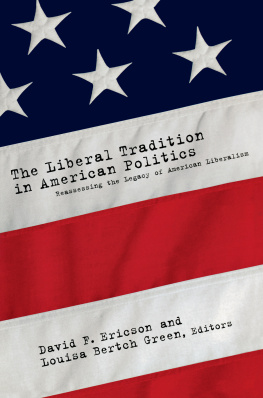
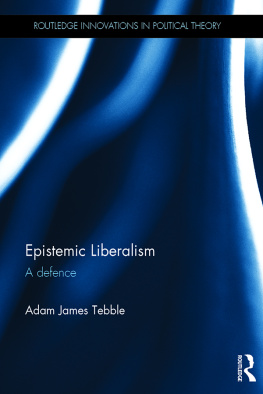
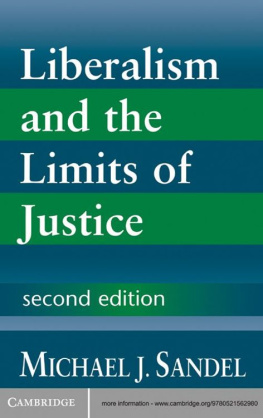
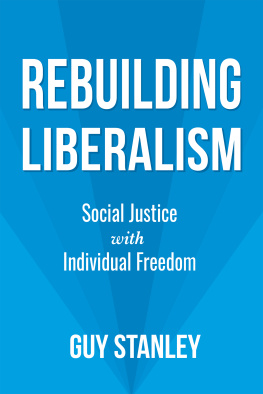
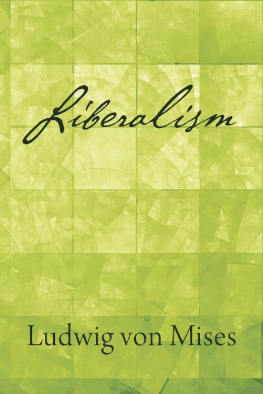

 PATRICK M. GARRY
PATRICK M. GARRY